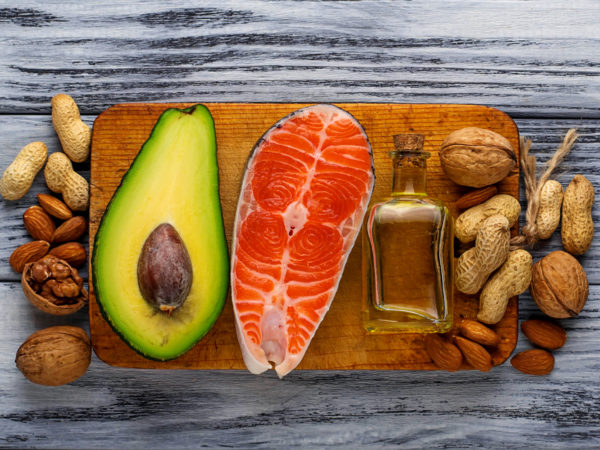Are All Synthetic Fats Unhealthy?
What can you tell me about synthetic fats? Are they all bad for you?
Andrew Weil, M.D. | February 15, 2011

Synthetic fats are commercially produced substitutes for the real thing that provide fewer calories or no calories at all. The best known of these, olestra (Olean™), was approved for use in foods by the FDA in 1996. This synthetic oil passes through the digestive tract without being digested or absorbed, which sounds like you could get a free pass on such normally high calorie foods as potato chips and French fries if they’re made with it. But olestra hasn’t worked out too well. Although it is still used in some potato chips and other snack foods, it never lived up to its initial commercial promise because it can cause intestinal cramps, gas, loose stools and, sometimes, anal leakage.
Olestra was also found to hinder absorption of antioxidant carotenoids as well as vitamins A, D, E and K. Some “light” chips are still made with it, but the manufacturer, Procter & Gamble, is now mostly using it and related products in non-food applications, such as the manufacture of eco-friendly paints and lubricants.
The synthetic fat Simplesse, made from whey protein, is currently used in commercially produced salad dressings and sauces, yogurts and other cold foods. It breaks down when heated.
The newest of the synthetic fats is Z Trim, a no-calorie, no-fat product invented by a U.S. Department of Agriculture chemist. It is made from bran fiber (from corn, oats, soy, or other grains) and water and reportedly can substitute for about half the fat in recipes, thus cutting calories in half. An article in Consumer Reports in 2007 suggested that Z Trim was available directly to consumers via mail order, but the manufacturer’s website indicates that it now can be found only in commercially prepared foods including baked goods, snacks, dairy products and processed meats.
I recommend avoiding all synthetic fats. They don’t contribute to the development of good eating habits, and may be bad for you. Natural fats should account for about 30 percent of our daily calories. You don’t have to be afraid of them – they don’t make you fat, but I urge you to focus on the healthy ones, such as extra-virgin olive oil, nuts (especially walnuts), avocados, and seeds, including hemp seeds and freshly ground flaxseeds. Here are more of my views on dietary fats.
Andrew Weil, M.D.










